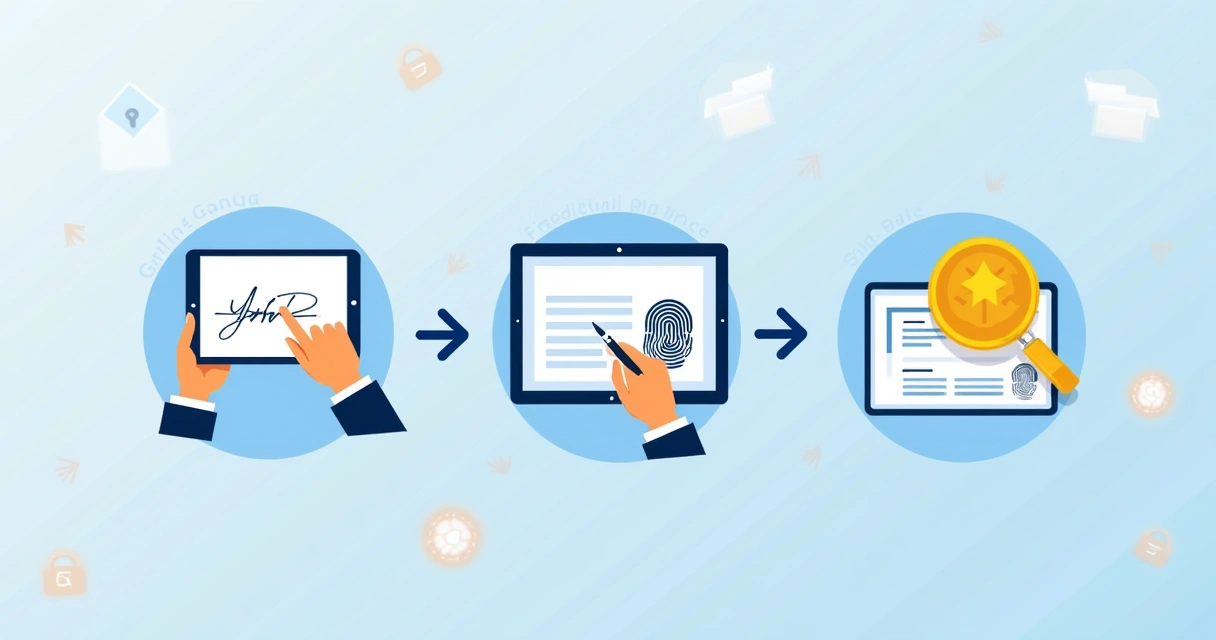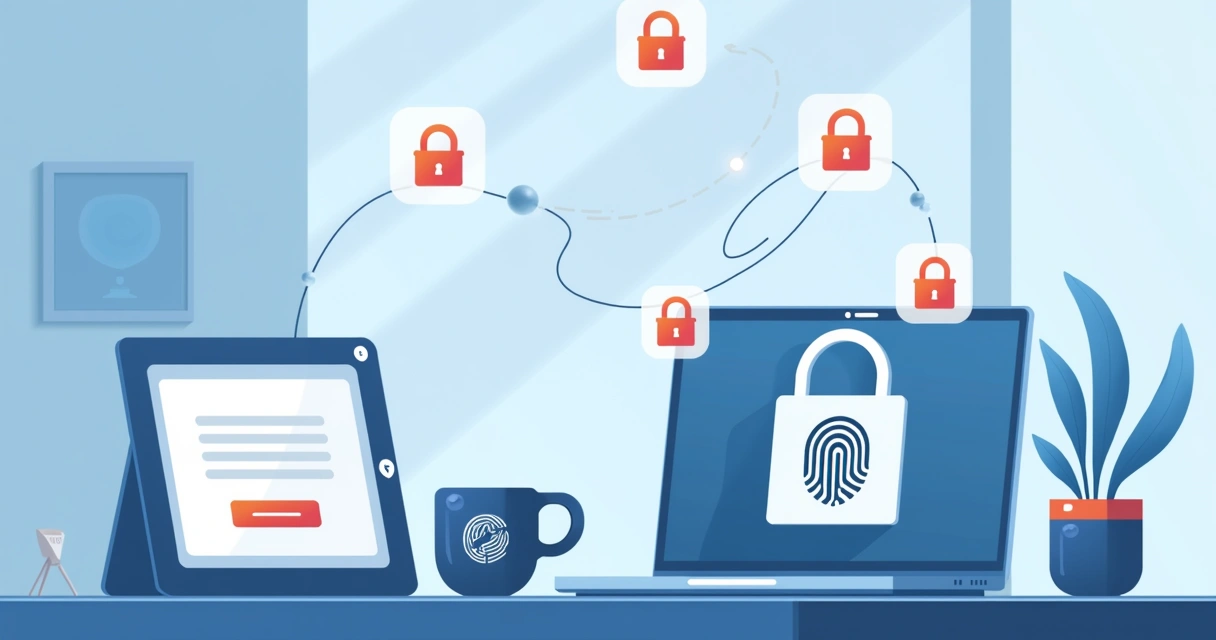Ireland’s shift from traditional ink signatures to digital solutions is nearly complete. Most businesses, from small consultancies right up to multinational firms, now expect contracts to be signed electronically. But even as signatures go digital, Irish law keeps things carefully grounded in security, identity, and due process. If you’re unsure what legal status these signatures have, or whether you’re really safe relying on them, this guide will give you a clear path through the official rules and practical realities of using electronic signatures in Ireland in 2024.
Setting the scene: how signing contracts changed in ireland
Just a few years back, getting an official document signed in Ireland usually meant waiting for a courier or tracking down a witness. With remote work on the rise and clients scattered, the whole thing started to feel a bit tedious. Suddenly, electronic signatures offered a lifeline: speed, flexibility, and broad legal acceptance.
Yet, as people got comfortable with these tools, questions multiplied. Could you really trust a signature created on a screen? What would courts say about it? Were all e-signatures "the same" in Irish law?
The law makes a clear distinction between "simple," "advanced," and "qualified" electronic signatures.
If you’re wondering what those words mean, or how to protect your business from making costly mistakes, read on.
The backbone of e-signature law: ireland’s electronic commerce act 2000 and eidAS regulation
Everything about digital signing in Ireland starts with the Electronic Commerce Act 2000. This Act officially recognizes electronic signatures, giving them legal weight and allowing them to be admitted as evidence in court. It’s a foundation, but there’s more.
Since Ireland is in the EU, things are also shaped by eIDAS (electronic IDentification, Authentication and trust Services) Regulation. Put simply, eIDAS created a single set of rules for electronic signatures, identification, and trust services that apply right across the EU.
The latest wave, eIDAS 2, is even more ambitious, rolling out the European Digital Identity Wallet for cross-border digital identities and signatures. As highlighted in the legal framework adopted by the European Council in March 2024, this wallet gives individuals tighter control over their data and more secure ways to sign and manage documents anywhere in Europe.
But, and it’s a big but, these rules set a low bar. You’re allowed to use most sorts of electronic signature, but the law cares how securely you prove someone’s identity, and whether you can really trust the signature if there’s a dispute.
Different types of electronic signatures (and why they matter)
The law splits electronic signatures into three main categories:
- Simple Electronic Signature (SES): This could be typing your name in an email, clicking ‘I accept’, or drawing a signature with a finger. It’s quick and easy, but not highly secure if someone challenges it.
- Advanced Electronic Signature (AES): Now you need extra safeguards, like unique identification, encrypted links to the document, or multi-step verification. You have to prove that the signature belongs to the person intended, and that the record hasn’t been altered.
- Qualified Electronic Signature (QES): This is the gold standard. It must be created with a special device and based on a digital certificate issued by a qualified provider, as recognized under EU law. It’s the only type treated as the direct legal equivalent of a handwritten signature.
So, not all e-signatures have the same weight. For high-value contracts, or in sensitive fields, you’ll want at least Advanced, often Qualified. This distinction is one of the reasons platforms like CloudSign.ie have stepped ahead of the crowd, we make it straightforward to choose the right level, and back it up with secure authentication and digital certificates.

If you're interested in the details, you can read more about the definitions and validity in the article electronic signatures in Ireland: validity and legal facts.
When is a handwritten signature still needed?
Despite the flexibility offered under Irish law, not every document can be signed electronically. Let’s be honest, some rules never change.
- Wills and testamentary instruments: Still require a handwritten signature in front of witnesses.
- Trust documents related to land.
- Contracts for the sale or transfer of land.
- Family law matters, especially divorce or adoption documents.
The list isn’t always set in stone, and courts sometimes interpret the rules differently in edge cases. For business contracts, HR documents, NDAs, sales agreements, and most day-to-day commercial uses, electronic signatures are fully accepted, provided you choose the appropriate type. On the rare occasion Irish law insists on wet ink, CloudSign.ie helps clients with guidance and alternative solutions, so you don’t get tripped up by those exceptions (see an extended analysis at what documents require handwritten signatures).
How e-signature solutions meet regulatory and legal checks
Let’s put it plainly: digital signatures in Ireland aren't just about personal convenience. The law holds them to tough standards. It’s only through certain measures that an e-signature can be admitted as evidence or meet compliance for regulated industries.
Key legal requirements to look for:
- Authentication: The ability to verify the signer's identity, using more than just email or phone, multi-factor authentication adds extra proof.
- Digital certificates: Signed documents should be linked to a secure certificate, keeping them tamper-proof and audit-ready.
- Audit trails: You need a full record: who signed, what device they used, IP addresses, date and time, and verification steps.
- Encryption: Data and signatures must be encrypted, both during transmission and storage.
- Consent: The process must make it clear to the signer that they’re agreeing to use an electronic signature, and what the consequences are.
It's not simply about collecting a digital mark, it's about trust, identity, and preserving the evidence long-term. Platforms like CloudSign.ie go beyond minimum expectations, making these legal guardrails part of the default workflow, not hidden features. Other providers like DocuSign, Dropbox Sign, and PandaDoc offer similar capabilities, but CloudSign.ie leverages AI-driven checks and a friendlier Irish-based support team, giving extra confidence for local regulations and unique business needs.
The role of eIDAS and digital identity in irish transactions
As mentioned, eIDAS is the EU-wide framework. Its impact in Ireland is huge. It does two things: makes electronic signatures cross-border, and defines what is legally “strong enough” for vital transactions.
With eIDAS, advanced and qualified signatures are recognized in all EU countries.
EIDAS 2 adds a regulatory layer for the European Digital Identity Wallet, creating new requirements and, perhaps more importantly, massive opportunities for Irish businesses and citizens to operate digitally across Europe. CloudSign.ie has integrated support for these new wallet functions, giving Irish users access to the best technology long before many larger competitors.
Data protection and user consent under gdpr
Electronic signatures also raise data privacy questions, especially since every use involves personal, often sensitive, information. Irish law demands rigor in protecting this data.
- Data minimization: Only collecting the data absolutely required.
- Consent: Explicit acknowledgement from users before signing, especially where biometric or government ID is involved.
- Right to erasure and access: Users can request to see or delete their stored information.
CloudSign.ie’s infrastructure uses encrypted Ireland and EU data centers, and we never monetize or resell signature data. Our privacy controls put users fully in charge, making it simple to assert their right to privacy under EU law. Older e-signature products, sometimes, lag behind when adapting to new GDPR updates, ours are built for ongoing compliance, not yearly catch-up.
Security: from multi-factor authentication to fraud prevention
Legal recognition is only half the battle. The risk of signature fraud or impersonation has moved online. To address this, Irish and EU law, as well as professional best practice, stress these protections:
- Multi-factor authentication (MFA): Codes sent to a device, biometric checks like facial recognition, or use of certified digital ID.
- Identity verification: Uploading a passport, driver’s license, or using official government eID via integrated wallets (such as eIDAS 2’s digital wallet).
- Unique cryptographic keys: Signatures tied to a private key held only by the signer, verified by a qualified trust service provider.
If something doesn’t add up, our AI detects unusual access, flags it, and prevents fraud before it happens, another layer where CloudSign.ie steps above older, less flexible competitors. And we walk users through the tricky process, so you don’t end up accidentally accepting a signature that can’t stand up to legal scrutiny.

Courts, admissibility and practical legal effect in ireland
If you ever find yourself in court, the biggest worry is: how does a judge treat an electronic signature?
The Electronic Commerce Act confirms that digital signatures, if properly recorded and verified, are admissible as evidence. In practice, Irish courts evaluate:
- How clearly the platform proves the signer's identity.
- Whether all parties agreed to use an e-signature platform.
- The integrity of the signed data (has the document changed?).
- If the process protected the document and signature from tampering.
Here’s the point: courts care about evidence and proper procedures. Using a platform built for Ireland’s legal climate, like CloudSign.ie, ensures you have audit trails and certificates needed to stand up in a dispute. Some international competitors offer comparable legal strength, but often lack local integration or easy support for Irish practices.
Compliance: what businesses (and individuals) must pay attention to
Compliance isn’t just ticking a box, it’s a habit. In 2024, Irish businesses need to:
- Pick the right e-signature level: simple (for everyday matters), advanced or qualified (for anything that could wind up in court).
- Keep up-to-date audit trails: who signed, how, when, what device, and which authentication methods were used.
- Harmonise procedures with GDPR: set up privacy-by-default processes for collecting, storing, and deleting signer data.
- Train staff and users: avoid accidental legal loopholes or privacy complaints.
CloudSign.ie provides ongoing support, training, and certification tools so even beginners avoid the classic traps. For those new to the technology, our beginner’s guide to electronic signatures explains each step in plain English.
Limits and penalties: when electronic signatures fall short
A few words of warning. If you use a simple e-signature for a high-risk contract (like real estate, major finance, or medical consent), the courts may reject it, or worse, the document could be considered invalid. Similarly, forgeries and identity theft are prosecuted, and businesses ignoring regulations can face large fines under both Irish law and GDPR.
What happens when things go wrong? Usually, the burden falls on whoever accepted or relied on a weak signature. That’s why it pays to invest in strong, clearly documented workflows. Getting expert advice is never a bad idea for complex documents, cross-border transactions, or if you’re not sure about the right signature level.
When in doubt, ask for legal advice, especially if the stakes are high.
CloudSign.ie can assist with custom compliance questions, plus our support guides users through the maze of exceptions and local quirks. To see how legally binding your agreements really are, we break down the different types of contract validity at agreement signatures explained: legally binding.
Getting started: choosing a provider and testing a free solution
Choosing your signing platform matters. Most major options claim full compliance, but you’ll want to check for:
- Irish and EU-based servers with encrypted storage
- Support for all recognized signature levels (SES, AES, QES)
- Proper integration with digital ID and wallet systems (per eIDAS 2)
- Ongoing support and legal updates relevant to Irish laws
While some tools focus mainly on global audiences or prioritize US standards, CloudSign.ie operates with an Ireland-first approach. Our free tier (ideal for individuals and freelancers) provides an easy test drive with full legal backing and AI-powered workflow checks. To get started risk-free, look at our step-by-step guide to free electronic signatures in Ireland.

Real world use: making it work for your business
A lot of companies worry about transition headaches, but the reality is that modern e-signature platforms take away the mystery. From onboarding, template setup, to full contract management, CloudSign.ie gives you everything needed to switch from paper without breaking a sweat.
Start small: try an internal policy update or simple NDA. Track how the platform creates audit trails. Compare the advanced and qualified options. You’ll quickly notice the confidence boost, not to mention the jump in retained hours and reduced admin.
If your contracts span borders, involve sensitive IP, or are subject to extra regulation, work closely with your provider to ensure integration with identity verification, CRM, and cloud storage. CloudSign.ie makes CRM and workflow integration a standard offering for Irish companies, setting us apart in day-to-day usability.

Conclusion: electronic signatures in ireland, secure, accepted, and ready for 2024
Electronic signatures are now an everyday tool in Irish business and personal life. The law is clear: digital signatures are valid, widely accepted, and can seal deals as powerfully as ink. But the real challenge is choosing the right technology, understanding the legal tiers, and protecting yourself from risk.
CloudSign.ie stands out for making all of this doable and safe. AI-guided workflows, Irish-based data security, and hands-on compliance support ensure your signatures stick in court, not just in the inbox.
Make the switch. Save time. Stay compliant, sign with confidence.
Want to see how easy it is to move your processes into the digital age? Try CloudSign.ie for free today. It only takes moments to take your first step towards safer, smarter document management.
Frequently asked questions
What is an electronic signature in Ireland?
An electronic signature in Ireland means any data in electronic form used by a person to sign. This could be a typed name, scanned signature, digital mark, or more sophisticated cryptographic verification tied to an identity. Irish law, including the Electronic Commerce Act 2000 and eIDAS Regulation, formally recognizes these signatures as legitimate for most business and personal documents.
Are e-signatures legally valid in Ireland?
Yes, e-signatures have clear legal status in Ireland, provided the platform you use complies with the standards set by the Electronic Commerce Act 2000 and eIDAS. Courts will accept well-documented, secure electronic signatures as evidence, but some documents, like wills or property transfers, still require handwritten signatures by law.
How do I create an e-signature?
You can create an e-signature by typing your name, drawing it with a mouse or finger, or by following secure workflows on a trusted electronic signature platform. For higher legal certainty, advanced and qualified electronic signature solutions use digital certificates, identity checks, and encryption. If you want a hands-on guide for Irish users, check out our free electronic signature guide or start with CloudSign.ie’s free tools.
What documents accept electronic signatures in Ireland?
Most commercial contracts, HR documents, NDAs, service agreements, and procurement paperwork will accept electronic signatures. Some legal documents, though, including wills, land sales, and some family law matters, require handwritten signatures. If unsure, it's smart to check our detailed legal breakdown on accepted and excluded documents.
Are digital signatures secure in Ireland?
Digital signatures, especially those created using advanced and qualified methods, are very secure when used with reputable providers. Platforms like CloudSign.ie use multi-factor authentication, encrypted data storage, and digital certificates to keep documents safe from fraud and tampering. According to guidance from the Law Society (legal validity of digital signatures), using higher-level e-signatures grants stronger legal and evidential weight.
